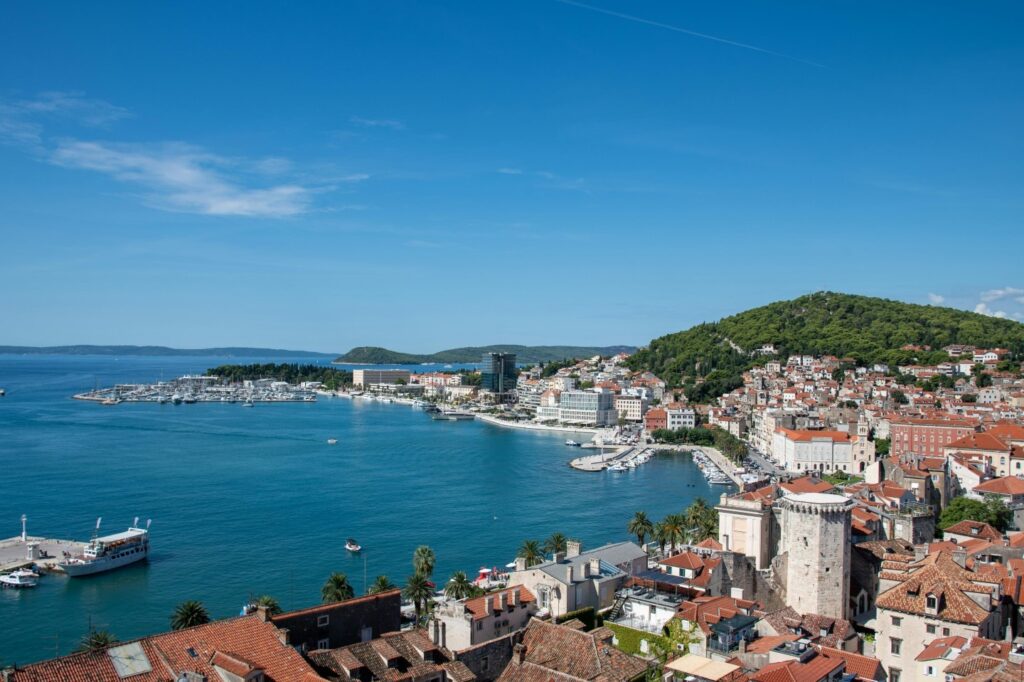8 essential steps to buying property in Croatia
Croatia is a popular destination for property purchases, attracting buyers from around the world with its stunning coastline and warm Mediterranean climate, rich cultural heritage, and attractive real estate market. For foreign investors, navigating the process of buying property in Croatia can seem daunting, but with the right guidance, it can be a rewarding and straightforward experience. This comprehensive guide will walk you through the step-by-step process of buying property in Croatia as a non-Croatian citizen.

What are the steps you should follow to buy property?
1. Property verification and Land registry
Before committing to a property purchase, it’s crucial to thoroughly investigate the documentation and legal standing of the property. Property disputes can be complex and emotionally draining. Understanding property records is a crucial first step in resolving these issues. This guide will help you navigate the process.
This includes obtaining the title deed (or “land registry extract”), which serves as proof of ownership. This document will provide detailed information about the owner, any encumbrances and existing rights over the property. In addition, it is also important to review the building and usage permits, ensuring the property is legally constructed and approved for its intended use. Additionally, you’ll need to review the energy performance certificate, which provides information about the property’s energy efficiency and compliance with local regulations.
2. Apply for an OIB
OIB is Croatia’s unique personal identification number, like a Social Security number in the US. It’s essential for residents and citizens alike, used for everything from taxes to healthcare. Your OIB offers no personal information and is randomly generated.
You’ll need your OIB for most official interactions, including opening a bank account, getting health insurance, or buying property. You can apply as soon as you arrive in Croatia or even before your arrival by granting power of attorney to someone else. Simply bring your passport and a completed application form.
3. Sales agreement
Once you’ve identified a suitable property, the next step is to draft a preliminary agreement or sales contract, typically prepared by a lawyer. This document will outline the terms of the sale, including the purchase price, deposit requirement, and any necessary conditions or contingencies. It’s important to note that the deposit, usually 10% of the total purchase price, must be paid upon signing the pre-contract and is typically held in escrow until the transaction is completed.
If the buyer withdraws from the purchase, the deposit is forfeited. Conversely, if the seller fails to meet their obligations, they must return twice the amount of the deposit to the buyer. The sales contract will also need to be notarized to be legally binding.
4. Obtaining permission to purchase property in Croatia
Croatia’s real estate market is open to foreign investors, but the specific requirements vary depending on your country of origin. EU/EEA and Swiss citizens generally have the same purchasing rights as Croatian nationals, while non-EU/EAA citizens may need to obtain special permission from the Ministry of Justice.
The process involves checking for a reciprocity agreement between Croatia and the buyer’s home country. This process involves verifying a reciprocity agreement between Croatia and the buyer’s home country. These agreements vary by country. Generally, the reciprocity agreement can be defined as „Our citizens can buy property in your country, your citizens can buy property in our country.” Find useful information about the reciprocity agreement here.
The application for permission includes submitting documents such as the certificate of the administrative body competent for urban and physical planning, a copy of the sales contract, proof of ownership, and proof of citizenship.
For nationals from countries without a reciprocity agreement, purchasing property as individuals is not permitted. Instead, they can establish a trading company in Croatia, typically a limited liability company (LLC), which can then own property.
5. Payment and property registration
After securing the necessary permissions, the remaining 90% of the purchase price must be paid, typically through a bank transfer. Once the full payment is received, the property will be registered in your name at the local land registry office. This process ensures that your ownership rights are officially recognized and recorded in the national property records.
6. Tax obligations after buying property in Croatia
When buying property in Croatia, you’ll need to be aware of the real estate transfer tax (RETT), which is typically 3% of the property’s value. This obligation exists if the seller, i.e., the property, is not subject to VAT (value-added tax), as evidenced from the sales contract or the sales receipt issued by the seller where VAT must be specifically stated as an item if it is charged.
7. The importance of professional assistance
Navigating the property purchase process in Croatia can be complex, especially for foreign buyers. Engaging services of an experienced real estate agency can provide valuable guidance and support throughout the entire transaction. Professionals can assist with property selection, contract negotiation, documentation requirements, and ensuring compliance with local laws and regulations. Consider to deal only with real estate agents and real estate agencies who are registered with Croatian Chamber of Economy.
8. Long-term investments and maintenance
If you’re considering a long-term investment in Croatian real estate, such as a vacation home or rental property, it’s crucial to plan for ongoing maintenance and compliance with local laws and regulations. This may include addressing any necessary renovations, ensuring the property meets safety and energy efficiency standards, and managing rental agreements and tax obligations.
Conclusion
Buying property in Croatia can be a lucrative venture for foreign buyers, but navigating the process requires careful planning and expert guidance. With the right support of licensed agents by NOVUM PLUS Realty Group, you can confidently explore Croatia’s stunning real estate market and secure a profitable investment. Our step-by-step guide will walk you through the process, ensuring a smooth journey to property ownership.






